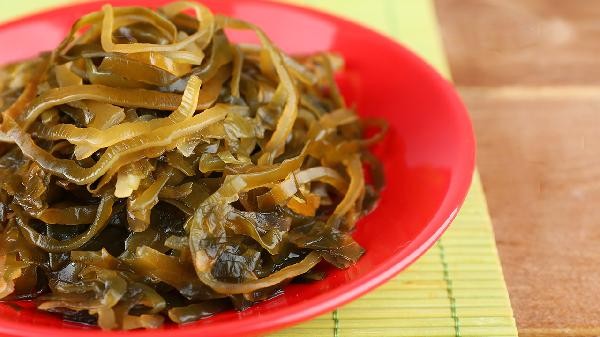Damp and hot constitution generally allows for moderate consumption of seaweed. Kelp has a cold and salty nature, and has the effects of promoting diuresis, reducing swelling, softening hardness, and dispersing lumps. It is suitable for people with damp heat constitution to assist in regulation. But if accompanied by spleen and stomach deficiency cold or thyroid dysfunction, caution should be exercised when consuming. Kelp is rich in dietary fiber and alginate, which can promote intestinal peristalsis and help eliminate dampness from the body. Its low calorie and high mineral characteristics help regulate the balance of electrolytes in the body, alleviate the bitterness and stickiness caused by dampness and heat. The iodine element in kelp can promote metabolism, but excessive intake may affect thyroid function. Suggest pairing seaweed with ingredients such as winter melon and Job's tears to enhance the moisture removing effect. Some individuals with damp heat constitution may have weaker gastrointestinal function, and consuming large amounts of seaweed may lead to diarrhea or indigestion. Hyperthyroidism patients should strictly control their intake of kelp to avoid exacerbating the condition with excessive iodine. It is recommended to pair ginger slices with food for women during menstruation or those with a cold constitution to neutralize the coldness.

People with damp heat constitution should have a light diet and can cook Congee with ingredients such as red bean and mung bean. Avoid spicy and greasy foods and maintain a regular daily routine. If there are long-term damp heat symptoms such as bad breath and acne, it is recommended to seek medical treatment for syndrome differentiation and adjustment. Kelp, as an auxiliary food for dietary therapy, needs to be adjusted in dosage and frequency according to individual circumstances.











Comments (0)
Leave a Comment
No comments yet
Be the first to share your thoughts!